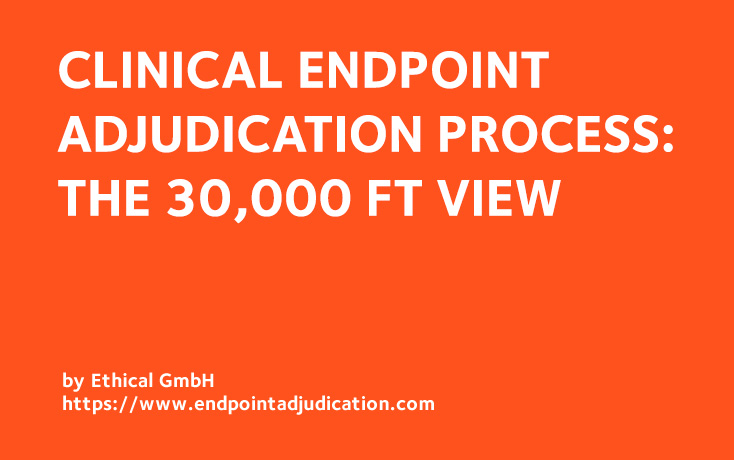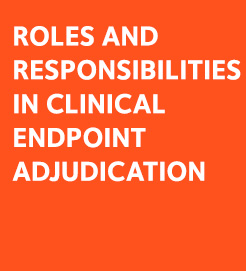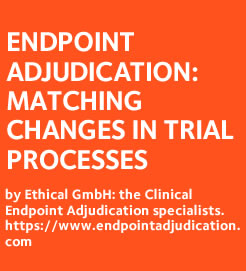The clinical endpoint adjudication process can be quite complex. The very reason why a clinical team decides to adjudicate one or more endpoints is indeed that they are complex and difficult for investigators to decode upon. Carefully planning every step and setting up the proper tools are therefore paramount to the success of the endeavor. Here’s a high-level view.

4 Phases of a Clinical Endpoint Adjudication Process
The clinical adjudication process is decided and piloted by the clinical team but needs input and help from several other teams such as operations, data management and IT. Once the decision is made to adjudicate one or more clinical endpoints, the process can begin.
Phase 1: Study Preparation
During the protocol development phase, study objectives and endpoints are defined and the precise events that will need to be adjudicated are selected. It is important to define what triggers an adjudication case (e.g. an adverse event, a particular outcome, a pre-defined assessment value…). The necessary data and records for reviewers’ assessment must be defined, adjudication forms created, and EAC members selected. Finally, timelines and workflows need to be drawn and all the above must be described in the Adjudication Charter which will be signed by all parties.
Phase 2: Software Configuration and Study start-up
Not all clinical adjudication studies will use a dedicated software platform, but if you do, now is the time to configure it. A number of technical steps and agreements will take place here, the key document being the Users’ Requirements Specifications (URS) which describes the software functionalities. Integrations and imports as well as data exports will be organized. Tests will be performed in the validation environment and finally the study moved in production in time for the study-start up.
Phase 3: Events processing
Once the study has begun and events that need adjudication start emerging, the process kicks in. Medical records and data are collected, compiled, anonymized and presented to the EAC members in a standardized, pre-agreed format. Cross checking and disagreement resolution are vital steps to ensure quality and consistency - these are not easy cases and the assessment requires high expertise. The endpoint adjudication office will monitor KPIs for efficiency and quality and may need to adjust the clinical adjudication process. Final opinions will be recorded in the study results and may define the overall outcome. A compliant software incorporates full, independent audit trail recording for audit purposes.
Phase 4: Study close-out
Lastly, at study close-out, a database quality control (QC) needs to be performed to verify for errors and misplacements and the final set of data will be transferred to the sponsor’s servers and archived for future verifications.
For more information about Clinical Endpoint Adjudication Process or Endpoint Adjudication in general, grab a free copy of Adjudication Handbook below:
DOWNLOAD NOW THE FREE ENDPOINT ADJUDICATION HANDBOOK
The Complete Manual / Reference Book (34 pages) with all the topics related to the Independent Endpoint Adjudication Committees Management








